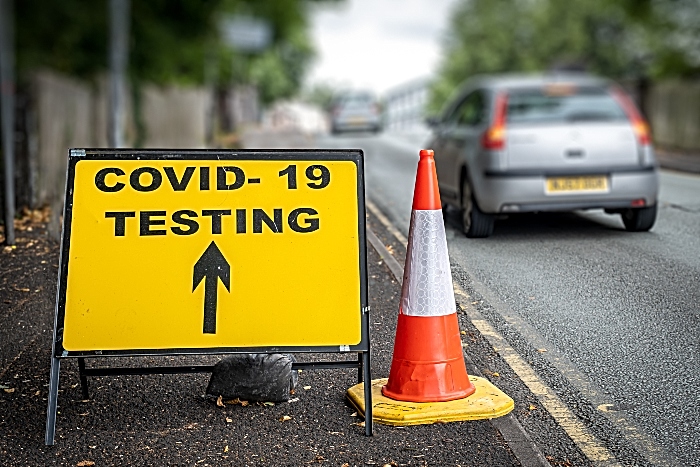
Covid cases in Cheshire East schools have dropped rapidly but one councillor fears the pandemic has sparked a “ticking time bomb” in our children’s mental health, writes Belinda Ryan.
The number of reported Covid-19 cases in the borough’s schools dropped from around 9,000 in January to 4,000 in March and was down to 97 in April.
Director of education Jacky Forster said: “We have continued to put support into our schools but from the beginning of June we are looking to no longer run our Covid support additional capacity.”
Cllr Sally Handley (Crewe St Barnabas, Lab) wanted to know what the council was doing to support children with resulting mental health issues and said she had been discussing the problem with friends who are teachers.
“They’re talking about children have returned and still, as a result of what’s happened in the last two years, feeling quite anxious – and a lot of them have got quite used to not being around as many people,” she said.
“Are we recording the feedback we’re getting from schools?
“And are additional measures being put in, because I think this is still, in many ways, a ticking time bomb in terms of mental health for children across all school years.”
Mrs Forster said the council was putting a lot of support in regarding mental health.
“Children who’ve missed nursery and that interaction, whether it’s quite mental health, but they’re struggling with social interaction because they’ve not had those same opportunities,” she said.
“We’ve got commissioned services in all of our primary schools around well-being.
“We have a well-being-in-education officer who’s doing training with all settings and staff.”
The education boss said there were also some pupils that needed targeted intervention.
“So there’s a whole range but, absolutely, it’s going to take us a number of years and the issues are very different for different year groups,” she said.
“And we know that we’ll see consequences of this actually for a number of years, as they move forward.”
Vaccination rates show 81% of 16 and 17-year-olds have had their first jab and 69% have had their second.
And 70% aged 12 to 15 have had their first vaccination and 48% their second.
No data is currently available for the five to 11 age group but Mrs Forster said it is ‘picking up momentum’.
She said the focus now is on managing the consequences of the pandemic.
This includes ensuring all pupils are attending school and there are still no long-term absences and looking at the curriculum, assessments and catch-up work.
She added there were also some specific actions around SEND (pupils with special educational needs and disabilities) and behaviour ‘because we’re seeing increased incidents of those and demand around that post Covid’.


















Recent Comments